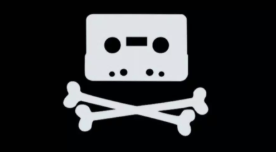Last December Internet provider Cox Communications lost its legal battle against a group of major record labels.
Following a two-week trial, the jury held Cox liable for the copyright infringements of its subscribers, ordering the company to pay $1 billion in damages.
The verdict sent a shockwave through the industry, not least because several other ISPs are caught up in similar lawsuits. Cox itself is heavily disappointed by the decision and would like the court to overturn the verdict.
Late last week Cox renewed its request for a judgment as a matter of law, asking the court instead of the jury to rule on several piracy liability questions.
According to Cox, the evidence presented did not support the jury’s findings of direct, contributory, or vicarious liability. In addition, the ISP argued that least 8,000 copyrighted works should not have been part of the judgment.
This motion was submitted together with a separate request to lower the damages award. If the court chooses not to grant the judgment as a matter of law, this so-called motion for remittitur will come into play.
Federal courts have the power to lower the awarded damages when the scale of the amount is disproportionate to the evidence or when it results in a miscarriage of justice. According to Cox, that’s certainly the case here.
“The $1 billion verdict in this case is a shocking miscarriage of justice. It vastly exceeds any previous statutory damages award under the Copyright Act,” the ISP writes in its motion for remittitur.
“It is wholly disproportionate to the evidence of harm to Plaintiffs, benefit to Cox, or any demonstrated need for deterrence, and is unsupportable under the Court’s jury instruction on damages,” Cox adds.
The ISP points out that the damages award appears to be the largest ever in a copyright case, eight times higher than the previous record. According to Cox, there is no basis for this high amount, especially since Cox is not a direct infringer.
In the damages instruction, the jury was asked to take a variety of factors into account. This included the profits Cox earned because of the infringement, a deterrent against future infringement, willfulness, and the need to punish the ISP.
According to Cox, however, the massive damages are in no way justified by these factors and the presented evidence.
“As applied by the jury, however, [the factors] resulted in an award that bore no relationship to these considerations, and was so grossly excessive as to constitute a miscarriage of justice.
“Because the extraordinary $1 billion verdict cannot be supported by the factors the jury was instructed to consider or the evidence informing those factors, Cox is entitled to a substantial remittitur or a new trial,” the ISP states.
Among other things, the ISP stresses that any profits it made from repeat infringers are not exclusively tied to infringing activity. Any reasonable connection to the excessive damages amount is missing.
If the court prefers not to consider lowering the damages amount, the ISP would like to have a retrial to argue its case again and show that an award of $1 billion in damages is shockingly excessive.
—
A copy of Cox’s renewed request for a judgment as a matter of law is available here (pdf) and the motion for remittitur can be found here (pdf).


 Last December Internet provider Cox Communications lost its legal battle against a group of major record labels.
Last December Internet provider Cox Communications lost its legal battle against a group of major record labels. 




